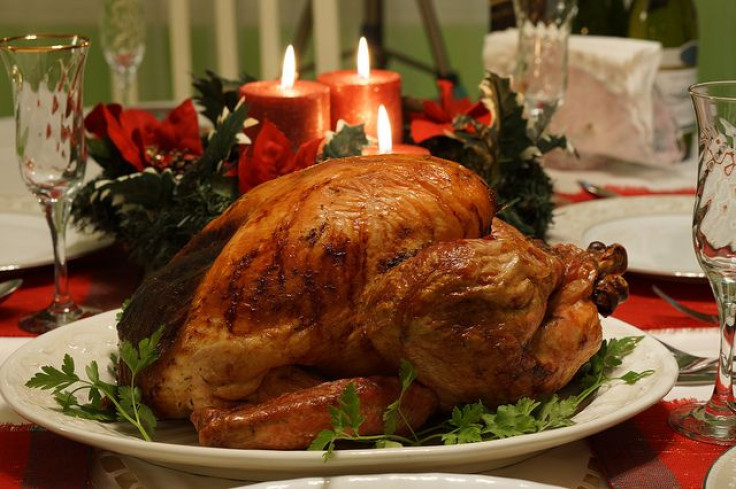All That Christmas Food Have You Feeling Stuffed? How To Bounce Back From Overeating, According To A Registered Dietitian

If you spent this holiday season with a perpetual hangover and a month-long case of indigestion, know you're not alone. Many use the holidays as a time to let loose, enjoy themselves, and, of course, overindulge. But fear not, it’s never too late to get back on the right track. Just make sure you do so in a healthy way.
Stay Calm, Eat Right
All that extra food we tend to eat during the holidays can leave you feeling physically and mentally sluggish for a number of reasons. First off, eating large amounts of sugary foods causes spikes in your blood sugar levels. Although this will give you a temporary energy burst, when your blood sugar lowers, you will “crash” and feel sluggish and sad. In addition, your body uses more energy to digest fatty foods, like creamy gravies and mashed potatoes. The more energy we spend on digestion, the less we have for other more exciting activities.
It’s important to keep in mind that no matter how indulgent you were over the holidays, it’s always reversible. According to Registered and Licensed Dietitian Nutritionist Marissa Puleo, from Facing Food online nutrition counseling, the holidays are a time to indulge, and getting back on track is far easier than you might think.
While we may be tempted to restrict our calorie intake following a period of overindulgence, Puleo warns that this could have the opposite effect.
“It’s not natural for our bodies to be restricted calories,” Puleo told Medical Daily. “Oftentimes this leads to bingeing again, which can start a vicious cycle.”
Instead, Puleo suggests switching what kinds of foods you eat in the New Year and making small changes to “upgrade the quality of your meal.” This could include easy changes, such as switching out white flour for whole wheat or adding more vegetables to your plate. “When we eat more regularly, it really reduces cravings,” Puleo said.
Although we may be tempted to abstain from hearty foods following the holiday season, in reality opting for more filling meal choices has great benefits. For example, rather than surviving on an apple and coffee for breakfast, try having two scrambled eggs instead. The protein in eggs is capable of leaving us fuller for longer, and a 2008 study from Saint Louis University found that individuals who ate eggs for breakfast consumed an average of 330 fewer calories throughout the rest of the day than those who opted for a bagel.
According to Puleo, juice cleanses are also a good way to detox after the holidays, as they are an easy way to get additional important nutrients into your diet. However, Puleo warns against replacing your meals with a juice blend, since these drinks don’t have enough nutritional value necessary for a balanced meal.
Post-Party Blues
Excessive holiday drinking can take a heavy toll on both our body and mind. On a molecular level, our bodies use an enzyme called alcohol dehydrogenase to help break down alcohol and get it out of our systems. Alcohol binges can deplete your levels of this important enzyme. As a result, the alcohol is not broken down as well and can linger in your system for longer. This, combined with alcohol-induced dehydration, can cause seemingly never-ending hangovers and leave you foggy-headed for days.
Some even suggest taking a short-term abstinence from alcohol. A 2009 experiment conducted by 14 New Scientist staff members investigated the effects of temporarily giving up alcohol and found that a little really can go a long way. After giving up alcohol for only five weeks, the volunteers exhibited reductions in liver fat, drops in blood sugar levels, weight loss, and even better sleep quality, New Scientist reported.
However, while there are benefits to complete abstinence from alcohol, Puleo warned that this method is counteracted is you’re “just going to come back 10 times harder” afterward. Instead, of making a short-term plan, it may be best to think of your recovery from holiday drinking binges as a lifestyle change rather than a quick fix.
“Basically, get lots of good sleep, a lot of water, and incorporate physical activity, like walking, to get you back into a good routine,” Puleo said.



























